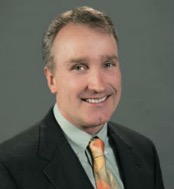Bruce Hungate, Regents’ professor of Biological Sciences at Northern Arizona University and director of the Center for Ecosystem Science and Society, is now among the distinguished scientists who have been elected to the American Academy of Microbiology.
Hungate was recognized with other 2016 newly elected AAM Fellows on June 17 at the annual meeting of the American Society for Microbiology. The class of 2016 includes Fellows from the United States, Canada, Spain, India, France, Australia, China and the United Kingdom.
The AAM is a prestigious leadership group of the American Society for Microbiology, the oldest and largest single life science membership organization in the world. Fellows of the Academy are elected annually through a highly selective, peer-review process based on their records of scientific achievement and original contributions that have advanced microbiology.
“As a fellow of the AAM, Hungate will be part of the scientific leadership that shapes our national and global endeavors to protect the health of our citizens and of our environment,” said Paul Keim, Cowden Endowed Chair in Microbiology at NAU. Keim said Hungate’s election to AAM is recognition of the global impact of his work and a great honor for NAU.
Hungate received inspiration to study microbiology from his grandfather, who helped him get his first summer job as a microbiologist. After receiving his Ph.D. in integrative biology from the University of California at Berkeley, Hungate worked on climate change projects at the Smithsonian Institution in Washington, D.C., as well as on nitrogen management and agriculture projects in Mexico City. Hungate came to NAU nearly 20 years ago. His work focuses primarily on microbial ecology and its significance in understanding global environmental change.
Hungate has co-authored more than 150 publications. His research results have been published in leading scientific journals, including Science, Bioscience, Frontiers in Ecology and the Environment and Nature Climate Change.
Hungate also directs the Colorado Plateau Analytical Laboratory, which is part of Ecoss, and he is co-founder of NAU’s master’s degree program in Climate Science and Solutions. In 2004, he was selected as a Leopold Leadership Fellow, a competitive and prestigious fellowship program that identifies 20 accomplished U.S. environmental scientists each year.



